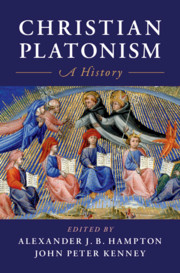Book contents
- Christian Platonism
- Christian Platonism
- Copyright page
- Dedication
- Contents
- Figures
- Contributors
- Acknowledgements
- I Concepts
- 1.1 The Perennial Value of Platonism
- 1.2 The Ideas as Thoughts of God
- 1.3 The One and the Trinity
- 1.4 Creation, Begetting, Desire, and Re-Creation
- 1.5 The Concept of Theology
- 1.6 Participation: Aquinas and His Neoplatonic Sources
- II History
- III Engagements
- Index
- References
1.6 - Participation: Aquinas and His Neoplatonic Sources
from I - Concepts
Published online by Cambridge University Press: 20 January 2021
- Christian Platonism
- Christian Platonism
- Copyright page
- Dedication
- Contents
- Figures
- Contributors
- Acknowledgements
- I Concepts
- 1.1 The Perennial Value of Platonism
- 1.2 The Ideas as Thoughts of God
- 1.3 The One and the Trinity
- 1.4 Creation, Begetting, Desire, and Re-Creation
- 1.5 The Concept of Theology
- 1.6 Participation: Aquinas and His Neoplatonic Sources
- II History
- III Engagements
- Index
- References
Summary
This essay treats of the (Neo)platonic influences in the thought of Thomas Aquinas, in particular the notion of participation. It describes Aquinas’ doctrine of participation in being as developed from his principal Neoplatonic sources, to wit, Boethius’ De hebdomadibus, Dionysius’ De divinis nominibus, and the Liber de causis. It argues that the doctrine of creation in terms of participation the Christian conditions of creation.
- Type
- Chapter
- Information
- Christian PlatonismA History, pp. 122 - 140Publisher: Cambridge University PressPrint publication year: 2020

